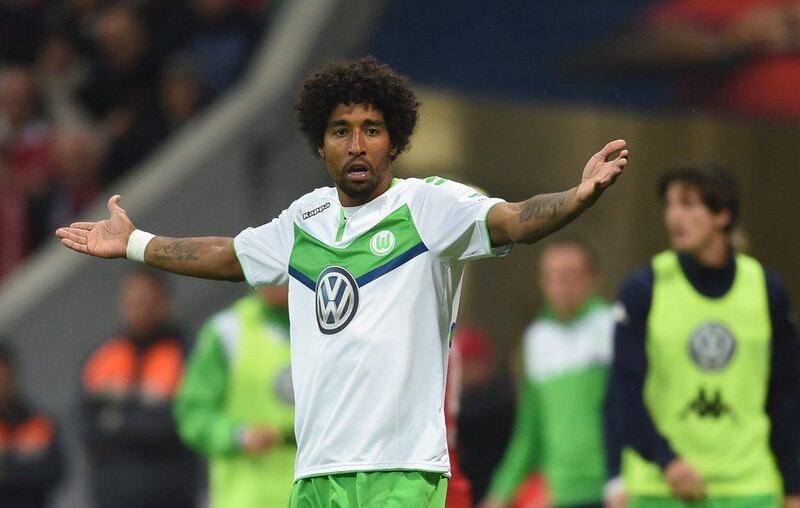What does the massive pollution test cheating scandal engulfing Volkswagen have to do with a football club?
A great deal, if the team is Wolfsburg.
As the carmaker braces for fines of up to $18 billion (Dh66b) in the United States alone for the scam, there are fears the club based in the eponymous northern German city where Volkswagen is headquartered may see its financial lifeline dry up.
After all, the club is 100 per cent owned by the carmaker, which has also been its main sponsor since the 1950s.
VW has always been discreet about its investments in the club, but German media estimate that it injects about €100 million a year for the team to stay on the top end of the Bundesliga chart, as well as for the VW logo to be carried prominently on the green and white jerseys.
And no man is a bigger fan of the team than Martin Winterkorn, whose appointment as chief executive of Volkswagen in 2007 resulted in a rise in sports spending.
But Winterkorn was forced to quit at the height of the VW scandal on Wednesday, to the dismay of the Wolves.
Coincidence or stress? On the eve of Winterkorn’s departure, Wolfsburg were thrashed 5-1 by league champions Bayern Munich.
An avid goalkeeper in his youth, Winterkorn has been a regular spectator at Wolfsburg matches, wearing the club’s scarf around his neck.
When it comes to football, the 68-year-old was “known for being capable of taking decisions that are not always rational” in terms of sponsoring, said Christoph Breuer, a economist specialising in sports at the University of Cologne.
Winterkorn’s successor, Matthias Muller, is also known to be a football buff, having himself once dreamt of going pro.
Nevertheless, he is “better known for his affinity to automobile sports” said Breuer.
And the financial pressure weighing on Volkswagen from the growing tangle of legal woes could lead to “calls for a cost-cutting programme” at the carmaker, said the expert.
The question over what Winterkorn brought to the team financially had already been raised earlier this year, during an ugly leadership feud with his former mentor at VW, Ferdinand Piech, the group’s patriarch.
Then, Germany's influential Bild newspaper said that Volkswagen could slash its sponsorship to Wolfsburg by €30 million (Dh123.3m) a year if Winterkorn were to be toppled.
A sum of that scale could crimp the capabilities of the 2009 German champions to woo top flight players.
The club this year paid €32 million to bring Andre Schurrle from Chelsea back to home turf, and another €35 million to Schalke for Julian Draxler.
Volkswagen’s investment is not pure generosity in football-mad Germany.
It also aims to “make the city more attractive” to its employees and to convince them to work at the headquarters rather than in Berlin, about 200 kilometres away, or in Munich.
“Wolfsburg will not disappear from the football map, but it may only dwindle in the middle of the league table,” said Breuer.
The club itself is putting on a brave face, with its sporting director Klaus Allofs insisting that the scandal will have “no immediate impact”.
Concerns are not limited to Wolfsburg, but also other clubs across several leagues.
The Volkswagen group and its subsidiaries are sponsors of 17 professional clubs in the top two tiers.
Its premium carbrand Audi, for instance, is a shareholder of both Bayern Munich and Ingolstadt.
There are therefore concerns that the scandal could spell "the end of expansion in football" by Volkswagen, said the Frankfurter Allgemeine Zeitung daily.
Others were less alarmist, noting that as part of damage control to its reputation, Volkswagen can ill afford to pull its sponsorship of these clubs.
“Volkswagen has a lot to do to improve its image” and regain the public’s confidence, said Sascha Gommel, an analyst at Commerzbank.
Cutting spending on Wolfsburg or other clubs could prove counterproductive, he said.
The analyst believes that Volkswagen has the financial muscle to settle the fines.
Follow us on Twitter @NatSportUAE





